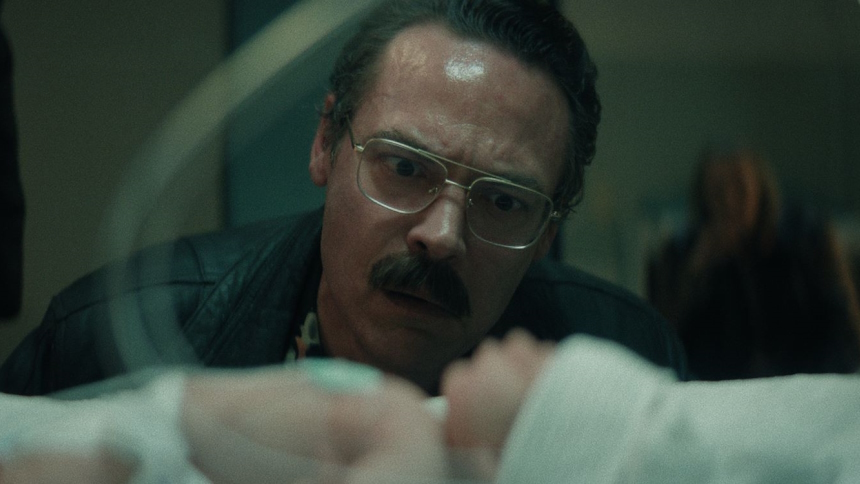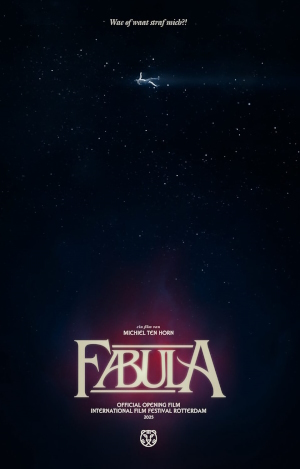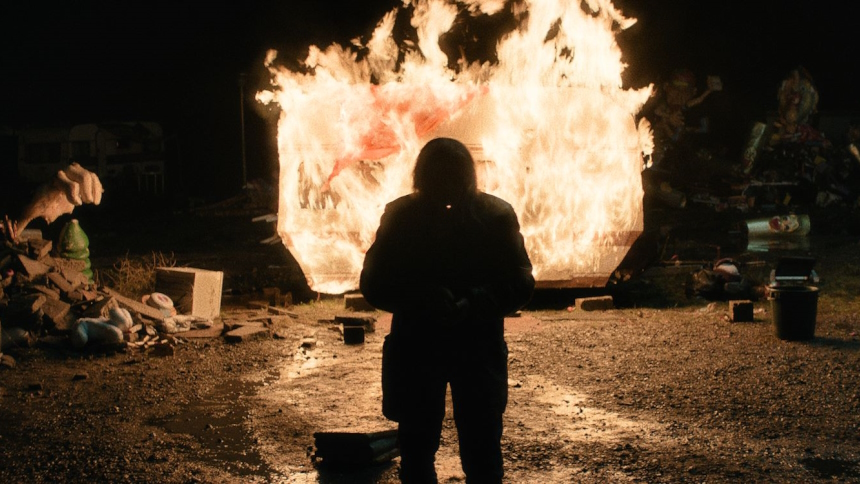Rotterdam 2025 Review: FABULA, Chaos In The Peatlands
Michiel ten Horn's new film tells its tale with all possible genre tools.

The Dutch film Fabula, the opening film of IFFR 2025, employs all possible means to tell its story. The film, much like its protagonist, the 55-year-old petty criminal Jos (played by renowned Dutch actor Fedja van Huêt), does not adhere to any specific theory. However, the title strongly evokes theoretical concepts, particularly the narrative theories of Propp and Shklovsky from the early 20th century. For them, fabula referred to the chronology of the story—in this case, the life story of Jos—while syuzhet denoted the way the story is structured and told by filmmaker Michiel ten Horn. So far for crawling in the skin of the of the old Russian formalists of which the filmmaker seems much the opposite.
In Fabula the story follows Jos, who, alongside his much younger Turkish-Dutch accomplice Özgür (Sezgin Güleç), takes on a lucrative criminal job—a deal in the drug trade—that promises to free him from his debts and financial troubles in one fell swoop. However, the job goes wrong, and a death occurs.

By this point, we have already been introduced to Jos’s ancestors, who toiled in the peatlands of the southern Netherlands for a better life. While that better life has materialised to some extent, their descendant Jos remains, as many of his Dutch counterparts do, anchored at the bottom of society, feeling himself victim of a dark fate. A small insect infecting Jos with a disease that brings with it subtle hallucinations, seems to confirm this.
The delusions of Jos, along with the chapter divisions, the music, the numerous plot twists, and the many gangster characters—including Hendrik (Georg Friedrich), Jos’s murderous brother—become part of the filmmakers storytelling method and to return for a moment to theory, they are part of the syuzhet the story telling apparatus. To complete this complex ensemble, there is also an omniscient narrator in the form of a voiceover. Mythical figures as well as real life gangster all add to the greater despair. In this somewhat sinister carnivalesque landscape, the characters need no drugs for their delusions, though—much like in the real-life border regions of the Netherlands—the production and trade of organic and synthetic drugs play here a significant role.
The increasing chaos in Jos’s mind also largely shapes the narrative perspective of the film. The music by Djurre de Haan amplifies this chaos, creating a sense of evolution from beginning to end. Director Michiel ten Horn (b. 1983) does not deny his roots in animation or his love for dark comedy - in 2014 he made the much awarded Aanmodderfakker - and gangster films. In Fabula he blends live-action with observations of the film’s swampy setting—the Peel region—a place filled with fables, legends, fairy tales, and carnival as a form of redemption.
Fabula is a film that lives up to its name as being a fable, a fairytale. For this it employs every possible tool to tell the story of Jos, the hustler. Complete with stabbings, shootings, and an unorthodox beheading scene that once again reveals the filmmaker’s origins and preferences—and will delight horror fans—the film is a Dutch, German, and Belgian co-production. It emerges from a production climate that, much like the syuzhet of Fabula, must pull out all the stops.
But the payoff is worth it. The film’s finale would surely please Propp and Shklovsky.

Fabula
Director(s)
- Michiel ten Horn
Writer(s)
- Michiel ten Horn
Cast
- David Kross
- Fedja van Huêt
- Anniek Pheifer

Do you feel this content is inappropriate or infringes upon your rights? Click here to report it, or see our DMCA policy.






